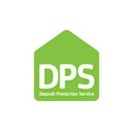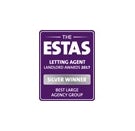Read our A-Z list of things you should be doing or in the know about when becoming or being a landlord:
Please note this list is not exhaustive.
A – Assess tenant applications
You want to assess whether the prospective tenants can afford the rent. A copy of a work contract or a letter from the tenants’ employer can be requested.
B – Build an emergency fund
You should aim to have three to six months’ worth of spending in your emergency fund, as a general rule. The money must be available but out of reach in order for it to be regarded as an emergency fund. It should be kept separate from the rest of your personal or business expenses in a separate checking or savings account.
C – Comply with all housing regulations
Complying with housing regulations is the law and extremely important for the health and safety of your tenants. Make sure you know the rules!
D – Develop a fair tenancy agreement
Being a fair landlord involves developing a fair tenancy agreement.
A tenancy agreement can be made up of:
Express terms – these include what is in the written tenancy agreement (if there is one), in the rent book, and what was agreed verbally
Implied terms – these are rights given by law or arrangements established by custom and practice, they don’t need to be written in your tenancy agreement
E – Ensure safety standards are met
Tenants’ safety is the most important part of being a landlord. All necessary measures need to be made to ensure this is the case.
F – Find a suitable property
If you want to become a landlord and are yet to buy the property that you intend to rent out, or perhaps you’re adding to your portfolio.
G – Guarantee rent payments
When a tenant is unable to pay their rent, a rent guarantee insurance policy can help protect you. Rent Guarantee Insurance will take care of those recurring rent payments so you won’t be out of money. With some policies, if you must take legal action against your tenant, it can also pay your legal fees.
H – Handle tenant complaints
Minor complaints may happen, but hopefully, there shouldn’t be any major complaints that a tenant should have to make. Regardless of the severity of the complaint – a tenant should have a straightforward way of putting these forward and the landlord should handle these promptly, fairly and professionally.
I – Inspect properties regularly
Inspecting properties is a crucial element of being a landlord. They safeguard your investment, ensure that your property is maintained to a high standard, enable the early detection of maintenance issues, and foster positive tenant relations in addition to ensuring that your property is being maintained to a high standard.
J – Judge tenant suitability
After you’ve assessed tenant applications – you’ll need to judge whether the tenants are suitable for the property that you own.
K – Keep up to date with local laws
Local laws such as the selective licensing scheme in Nottingham exist in different counties across the UK. It’s imperative to keep on top of these to make sure you’re not doing anything illegal that could put tenants at risk and pose the risk of the landlord being fined.
L – Leverage technology for efficiency
Technology can help to keep things efficient. For example, property management software can help landlords manage their properties more efficiently, including tracking tenants, collecting rent payments, and managing maintenance requests.
M – Manage property repairs
There are a collection of repair responsibilities that come with being a landlord, this includes:
- gas pipes and boilers
- electrical wiring
- heating and hot water
- chimneys and ventilation
- sinks, baths, toilets, pipes and drains
- common areas including entrance halls and stairways
- the structure and exterior of the building, including walls, stairs and bannisters, roof, external doors and windows
N – Negotiate lease terms
A tenancy agreement isn’t written in stone before it is signed, so to speak. It’s acceptable for both parties to negotiate terms and clauses. Know the things that are non negotiable for you but things you might be willing to budge on as a landlord.
O – Observe tenant rights
Familiarise yourself with tenant rights and be sure to observe them. Check on the gov.uk site.
P – Protect deposits
By law, deposits in England are limited to no more than five weeks’ rent. With a standard private tenancy or Assured Shorthold Tenancy (AST) a landlord or agent must protect the deposit in a government scheme within 30 days of receipt and pass the details on to the tenant.
Q – Qualify prospective tenants
Qualifying tenants is an important step in the rental process to ensure the safety and security of the property and other tenants.
R – Respond quickly to requests
Just like we mentioned with responding to complaints in a timely manner – any reasonable form of communication from a tenant, even if it’s just a very small question should be answered promptly.
S – Set up payment systems
You’ll have to set up a system to ensure you’re getting paid properly and simply. Landlords collect payment in various ways, including cash, cheque, standing orders and Direct Debit. Direct Debit tends to be one of the most popular payment methods for Landlords.
T – Think about whether you’ll rent out furnished or unfurnished
Just starting out? You’ll have to think about whether you’ll rent out your property as furnished or unfurnished. Many studies show that unfurnished homes tend to be favoured, but there are also advantages to offering a furnished property.
U – Understand tenant responsibilities
Although there are a lot of responsibilities that come with being a landlord, paying the rent and paying the bills are a tenants’ responsibility. Other responsibilities include general maintenance such as keeping the home, garden and outside areas reasonably clean and tidy and ensuring they are using electrical and gas appliances safely.
V – Verify rental references
. This includes confirming the tenant’s rental history, paying habits, and any other information that the tenant has provided. This helps landlords determine if a tenant is likely to make rent payments on time and be a responsible tenant.
W – Watch the rental market
Stay ahead of the rental market and what’s going on – you never know when it could be a brilliant time to invest in more properties to add to your portfolio.
X – Xenodochial attitude towards tenants
If you manage your properties yourself, it’s likely that you will come across the tenants living there from time to time. Although it’s not advised to get too close to your tenants, a friendly ‘hello’ and warm smile helps to foster mutual respect between both parties.
Y – Yield maximum rental return
Being a landlord is a business – and as a landlord you want to make sure you’re yielding the maximum rental return you can, whilst remaining fair and not cutting corners.
Z – Zip up legal documents
Some legal documents may still be in physical format – if this is the case, make sure they are securely filed away for your future reference.
Summary
That’s your whistle stop a-z tour of being a landlord. There’s lots of points we’ve covered in our list that Belvoir can take care of and save you the hassle, including leveraging technology, inspecting properties, handling tenant complaints (if any!), protecting deposits and assessing tenant applications.
If you want to add to your portfolio, or are thinking of becoming a landlord – get in touch with us to discuss anything in our list!









